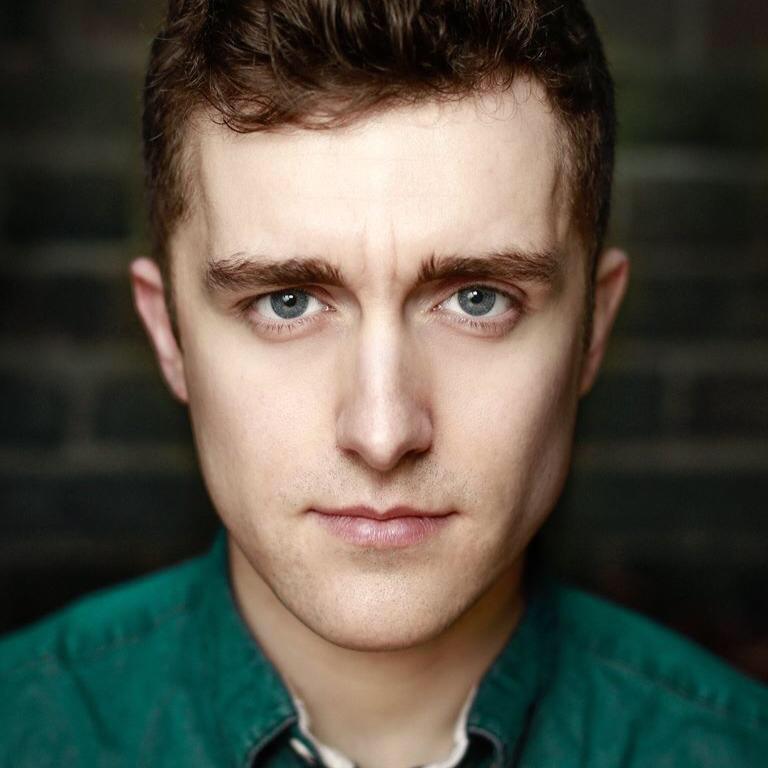Soundtracking from The Sims to space: TalkRadar meets composer Ilan Eshkeri
Writing the right notes to pluck at your heart strings
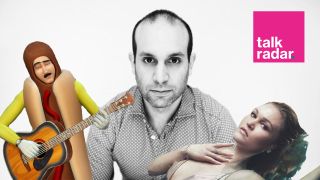
"If music be the food of love, play on," said some character in a Shakespeare play once. It's an often quoted line, and for good reason. It makes you sound really clever and it makes just enough sense that people nod along when you say it.
Really, music is the fuel of all emotions, and to be totally frank, the movies, TV shows, and games that we enjoy would be nothing without it. Don't believe me? Check out this video of Jaws with and without music then come back. See?
While we often talk about the actors, writers and directors of a project, it's only a very small minority of screen composers that are household names. I bet you can name more actors called some variation of Chris than you can film composers.
But when a film's music is right, it makes the film soar. Psycho would be nothing without the SHINK SHINK SHINK, Darth Vader would be nothing without the Imperial March, and Inception would be nothing without the BRRAAAAHHHHMMMM.
To get a better understanding of what it's like to be one of these unsung heroes, we sat down with Ilan Eshkeri, the award winning composer from films such as Kick-Ass, Layer Cake, and Stardust. He's also worked on The Walking Dead, The Snowman and Snowdog, and recent Sky hit Riviera. Alongside his work for TV and film, he has written music for video games including Sims 4, is currently working on his third ballet of this year, and is in the works on a top-secret project with the European Space Agency.
Starting out
TalkRadar: How did you get into composing for games, movies, and television?
Ilan Eshkeri: Like a lot of the best things in life it was a bit of an accident. Nowadays it’s extremely fashionable, lots of people want to be in film music, or music for the screen, or games. But when I started twenty something years ago, it was very niche. It wasn’t something that people were as aware of as they are today.
Get daily insight, inspiration and deals in your inbox
Get the hottest deals available in your inbox plus news, reviews, opinion, analysis and more from the TechRadar team.
The truth is, I wanted to be the guitarist in a rock’n’roll band. More than that I just wanted to work in the music business. And of course, who doesn’t want to be the guitarist in a rock’n’roll band?
Someone introduced me to a composer, and I started working for that person as an intern making tea, and before I knew it I was in the world of film music and not really in the music industry at all, because when you work in film music you’re working in the film industry.
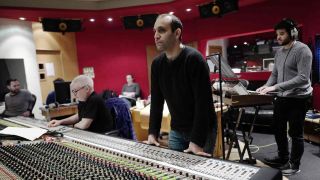
What I did alongside that - which was extremely important - was to do short films, and build up my own connections. And that led to me doing a lot of medical documentaries for the BBC, and some episodes of Horizon. And that eventually led to a bigger documentary. And it was the combination of these two parallel paths that led to my first significant film role.
TR: And what was your first significant film role?
IE: It was the film Layer Cake.
TR: That is a significant first job.
You know what’s funny; at the time of doing it Matthew Vaughn was a first time director, and the film was in trouble, and they’d had someone on board to do some music and it hadn’t quite worked out. They needed to bring a young person in who was able to work extremely hard, extremely fast, and for very little money. Who knew at that moment in time that it was going to become an iconic part of british cinema?
Next steps
TR: When it became iconic, did that help you get your next job?
IE: So, things don’t become iconic over night, it takes years and years and years. After Layer Cake there were some very tough years for me. I was very poor.
I was doing these tiny little documentaries. I was so poor, I used to sit on the side of the pavement outside this cafe down the road; at that time Wi-Fi was just starting to be a thing and that was one of the only cafes that had an open network. I didn’t have any internet at my place because I was so poor, so I just used to go down the road and sit there to upload these things. And that was after Layer Cake.
So no, it was a few years, maybe two years until I got another gig. It feels like a long time because I was young but it was maybe two or three years. But then I got another gig, which led to doing Hannibal Rising, and doing Stardust.
This year marks the ten year anniversary of the smash hit Stardust, also a Matthew Vaughn film.
TR: While you’re living it a year must feel like a very long time.
IE: It does, but you’re also under the delusion that if you just get your next break then everything will be ok. It’s interesting to tell these stories because you have to be prepared for it your whole career, because you never know when you’re going to have a bad year.
In search of genius
TR: When you’re working on a project, where do you draw your inspiration from?
IE: "I like to base a project in something real. You try and come up with a concept that relates to the story that you’re telling. Whether it’s a computer game or a film or whatever it is.
"I once did a film called Centurion about the disappearance of the ninth legion in Scotland. I did a lot of research in the folk music library in Regent's Park, and I found out about this weird instrument called the carnyx.
"It’s this really peculiar thing that goes about six feet into the air and has a dragon's head on it. It makes a horrible noise, it’s meant to scare off the enemy. There’s this guy who’s reconstructed one and we got him in to play it."
If you want to experience the bewildering joy that is the carnyx, check out the video below:
"It may not be as obscure as that, it may just be that this takes place in India so I’m going to use a sitar. It’s just good to have some parameters to push against. I can’t remember who said it, but someone said 'There’s no art without resistance from the medium'.
"If you’ve only got a small canvas, then you can only make small paintings and that becomes your thing. If a project doesn’t have much money then you can only use a small orchestra, or you create a strange group of instruments."
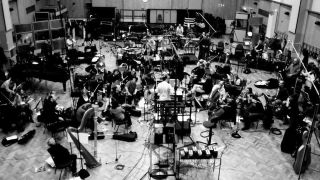
"The creative process within that is fascinating, because then you’re faced with this moment where you have to write a melody. And that’s a strange moment, because there’s no way to explain how to do that. There’s no way to teach someone how to do that.
"I find myself asking ‘Why is this one group of eight notes a work of genius and this other group of eight notes just a random group of eight notes?’
"I think the answer to that is when it becomes greater than the sum of its parts it stops just being a group of random notes, and it starts meaning something. And that’s what I’m always looking for in that creative process.
"And the final bit is a bit easier, it’s the craft, the bit that you can learn. So you can say ‘I’ve got Luke Skywalker’s theme’, but he’s sad in this sequence, so I do a sad version of it. And it’s action in this scene so I do an action version of it, and that’s more like building a chest. That’s the craft bit."
In search of WooHoo
TR: How is that different when you’re working on something like Sims 4 where you know it’s going to endlessly loop?
IE: "The Sims is different, even among computer games, because for the most part computer games are still narrative. The Sims games aren’t narrative, and actually the places where we have music in the Sims, are mostly in areas where the characters aren’t doing anything at all.
"What we try to do with The Sims is decide on a style that relates to fashion. Rather than relating to the mood, we’re trying to relate to an actual style, so a style of furniture or a style of clothing, or something like that, something of a zeitgeist."

"And then I like to hire musician friends of mine that can bring something to the table. Sometimes that means working with Guy Pratt (the bass player from James Gilmore’s Pink Floyd), or sometimes I’ll work with Andy Burrows (the drummer from Razorlight). So all these different people come in and provide their musical identity, and help it feel cool and relevant."
"We developed a system of levels with the music. So when you’re building a person, if you zoom in on a detail - on their face or something like that - the music becomes smaller. And when you zoom out, the music becomes bigger."
"It works by layering five different intensities, from the most intense to the least intense. And the game knows to crossfade to which intensity you want. All five are playing all at the same time, and you can just crossfade between them."
TR: Did you have anything to do with the WooHoo sounds?
Incase you haven’t played the Sims, WooHoo sounds are the vocal expressions of the more...passionate moments.
IE: "No, but I have made plenty of WooHoo songs. I tend to push the boundaries a bit too far, and have to draw it back; saxophone solos, breathy vocals, things like that."
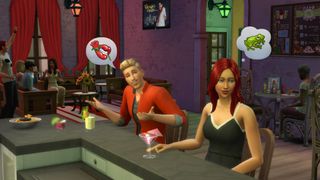
TR: Do you have any awareness when you’re working on a project if you know it’s going to work?
IE: "To be honest, most of the things that I thought were going to be successful haven’t been, and most things I thought weren’t going to be that successful have been huge successes. So I don’t think you can you ever tell.
"It’s a shame, because sometimes I feel like there’s a project that I’ve worked very hard on, and it’s really interesting, and I did good work that I was really proud of and nobody will ever really see it or hear it. That’s why you’ve always got to give everything to every project that you do. You just never know.
"I worked on a show called Doctor Thorne, which was written by Julian Fellowes, the Oscar winning writer who wrote Downton Abbey. It’s an adaptation of a victorian novel, big costume drama, big stars, all that. We made that TV programme, and I wrote some music that I was really proud of for it, and we were thinking ‘How could this not be a success?’ but not a soul watched it."

"By contrast, Riviera, I did not expect it to be as huge a hit as it has been. So you never really know."
Despite less than favorable reviews, according to Sky, Riviera has been the most popular box set release in Sky Atlantic history.
TR: When creating the score for Riviera, which is full of suspense and intrigue, how do you stop it sounding like all the other Bond-esque shows?
IE: "If you spend your time trying to be different, then you forget to just be creative. I think you just have to write good melodies, find a combination of sounds and melodies that works and feels interesting and unusual to you.
"Finding those things is about your own personal journey. It’s not about attempting to be different to everybody else. Sometimes you manage to do that more successfully, other times you don’t. Ultimately, you just want to be proud of the work that you’ve done.
"Indiana Jones, that’s not particularly different, it’s just a damn good tune. And that’s what it comes down to."
TR: Have you ever written something, taken it in, and then someone point out that it’s the theme from Tinker Tailor Soldier Spy?
IE: "I haven’t done that. I’ve definitely had high profile things where people on the internet have said ‘This sounds like that’ but to be honest, my influences tend not to be other film composers. I was a teenager when grunge was a thing, I grew up with Nirvana, and Pearl Jam, and later Oasis and Blur. Those are my influences."
Space, the final frontier
TR: How did you end up writing music for the astronaut Tim Peake?
IE: "I got followed on Instagram by the European Space Agency. So obviously I instantly followed them back; then I got a direct message saying Tim Peake is a big fan of your work, would you consider writing some music for him?
"Now at this point Tim wasn’t really in the press, so people weren’t really aware of who he was. I was only vaguely aware. I started doing my research and was like, ‘Wow, he’s an astronaut, he’s going to actually blast off on a rocket and go to the space station. That’s amazing.’
"So of course I wrote back and said ‘Whatever you need, but what I’d like is to come to the rocket launch.’ They said that was going to be a bit difficult as it’s in Kazakhstan, you have to go via Moscow, and it’s on a Russian Military base.

"But Tim invited me to come and see him at Johnson Space Station, so off I went, and met Tim, and got this incredible personal tour of all the training facilities.
"We went out for dinner, and he was so fascinating that I started to form this idea for a larger scale project which I can’t really say too much about as we’re in the midst of creating it. But that expanded and expanded. So I’m working very closely with the European Space Agency and Universal music, and some other entities towards a show that will happen at some point next year."
TR: What do you use as your inspiration if it’s not on this planet?
IE: "What I realised is interesting is not space itself, but humans in space. It’s about going out there, it’s about exploring it. So what you want is the human element. I think vocals are a very important part of that.
"Something that was said by astronauts that went to The Moon was that the most important thing was not actually going to the moon, but looking back at planet Earth from a distance. That was a profound moment, seeing how we’re all part of a connected system."

"We’re just on this fragile lump of rock hurtling through space, and we have to look after it. That’s really what’s interesting about it. The humanity of it."
TR: That’s incredible. What notes do you write?
IE: "Yeah, exactly. Pick a note. That’s the other thing that I think, you’re sat in front of the same 88 black and white notes that Wagner and Beethoven and Mozart were sat in front of, like ‘Okay, pick one. Go.’"
Riviera is currently available exclusively on Sky Atlantic and NOW TV.
- Andrew London has always been fascinated by the amazing things that people do that shape the way we live our lives. In his regular TalkRadar column, he will be interviewing people from across the world of tech to discover what they do, and why they do it.
- Check out his previous interview with Babylon CEO Ali Parsa in: Creating the Google of medicine: meeting the human CEO behind the AI doctor
Andrew London is a writer at Velocity Partners. Prior to Velocity Partners, he was a staff writer at Future plc.
